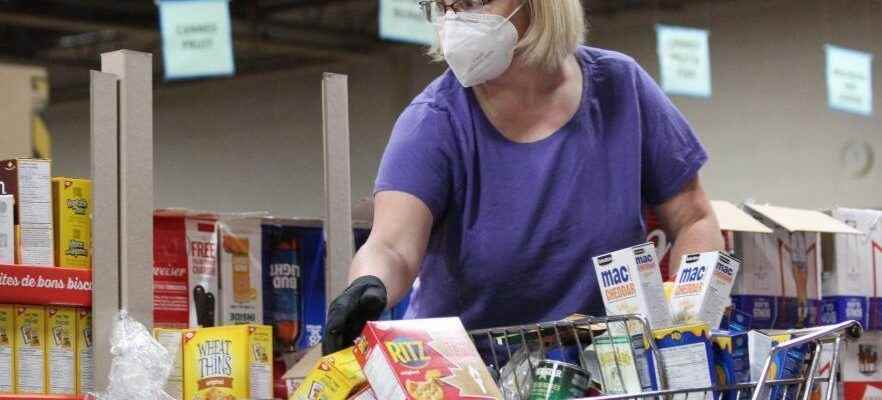The London food bank is seeing record numbers of people coming for help, months earlier than expected, officials say.

The London food bank is seeing record numbers of people coming for help, months earlier than expected, officials say.
A total of 3,987 families – roughly 10,000 people – were served in June, co-director Glen Pearson said Wednesday.
“That’s the highest ever. It’s increased since then, so July is going to be over 4,000, which is what we thought would not happen till maybe November, December,” he said.
Only two weeks ago, Pearson had predicted the number of families served in a month would hit 4,000 by year’s end. The previous high, about 3,700 families a month, was set several years ago, he said.
”It really snuck up on us fast. And it has on all of the food banks across the country,” he said.
“It’s because of the perfect storm (of) different things. if you’re looking at it from the food bank point of view, it’s primarily rents . . . (that) have gone up so much that people are just having trouble affording housing.”
But inflation, rising gas prices and the end of government pandemic supports also are fueling demand, Pearson said.
The average asking rent for a two-bedroom unit available in June was $2,059, according to tracking website Rentals.ca. That represents a year-over-year increase of 28 per cent.
Inflation in Canada hit 8.1 per cent in June, the highest year-over-year increase in 39 years, with gas and food prices major contributors.
“I think all of these things have combined in ways that we don’t fully understand as a nation to drive people to more despair and . . . into tighter circumstances,” Pearson said.
The food bank is starting to see small business owners seeking emergency food, because they lost so much money during the pandemic and customers have yet to return, he said.
And as demand for food rises, donations have slowed from pandemic highs, Pearson said.
“We fully expected that. It’s totally OK, we understand that people are now paying $1,000 more for food this year than last, and that’s just food, not gas or rent or anything else,” he said.
“For food banks, the problem is going to increasingly become not just clientele growing, but the strain that’s on people who donate to do so to the degree that they did before. I think that’s going to be a real issue.”
